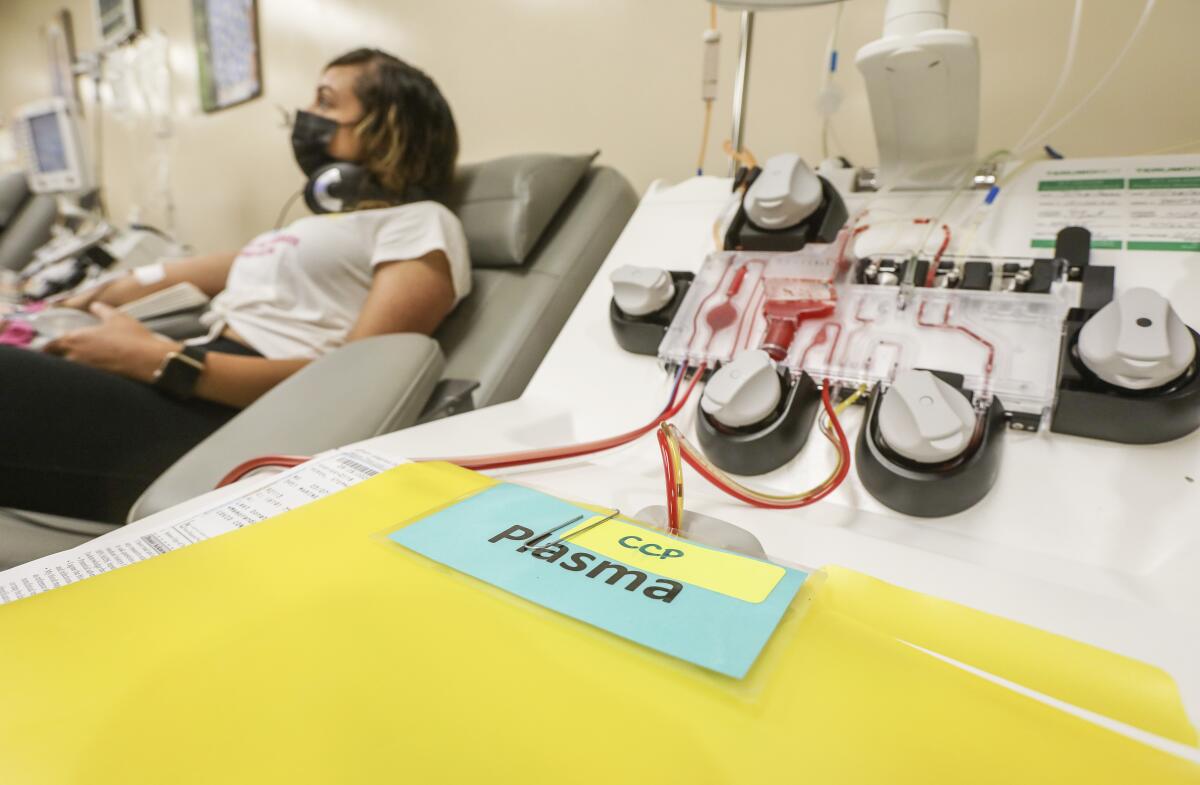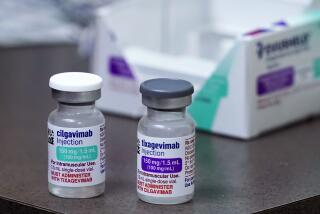WHO advises against use of survivors’ plasma to treat COVID

- Share via
GENEVA — Experts at the World Health Organization recommended Tuesday against using blood plasma from people who have recovered from COVID-19 as a treatment for patients with the illness, saying evidence had not shown the costly, time-consuming transfusions to be effective in preventing severe illness or death.
The guidance against the use of convalescent plasma, a component of blood that is rich in antibodies, was published in the British Medical Journal based on results from 16 trials involving more than 16,000 patients with varying degrees of coronavirus infection, the WHO said.
“Despite its initial promise, current evidence shows that it does not improve survival nor reduce the need for mechanical ventilation, and it is costly and time-consuming to administer,” the U.N. health agency said in announcing the recommendation of an international group of experts.
“As such, the WHO makes a strong recommendation against the use of convalescent plasma in patients with non-severe illness, and a recommendation against its use in patients with severe and critical illness, except in the context of a randomized controlled trial,” the agency said.
Scientists searching for a medicine to treat patients with COVID-19 are looking for it in the blood of people who have already survived the disease.
The group of experts said in an 81-page study that there was “no clear benefit for critical outcomes” for COVID-19 patients, such as reducing their need for ventilators or their chances of dying.
The WHO has weighed in on other COVID-19 treatments, such as recommending some steroids for patients with severe or critical cases, and advising against the use of the anti-parasite medication ivermectin and the malaria drug hydroxychloroquine.







